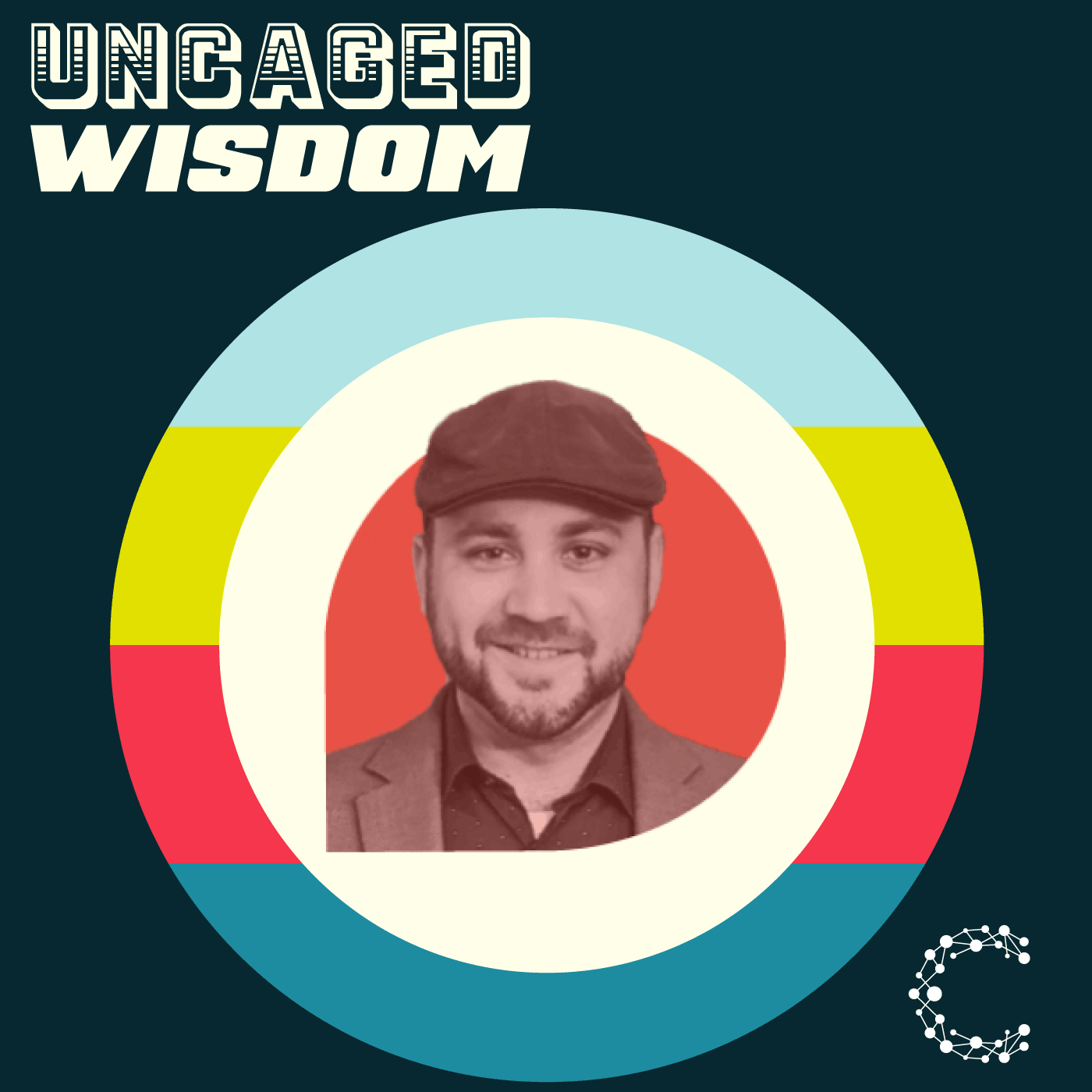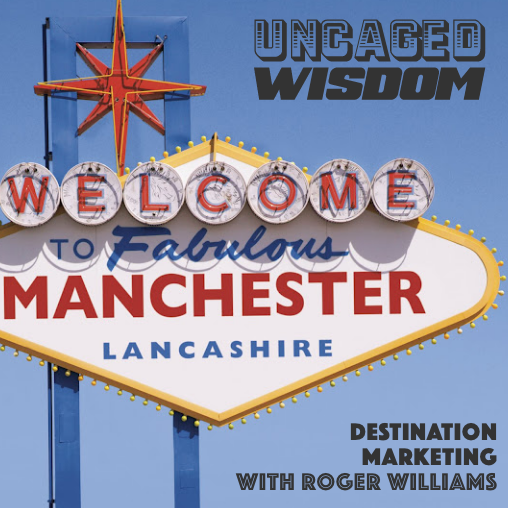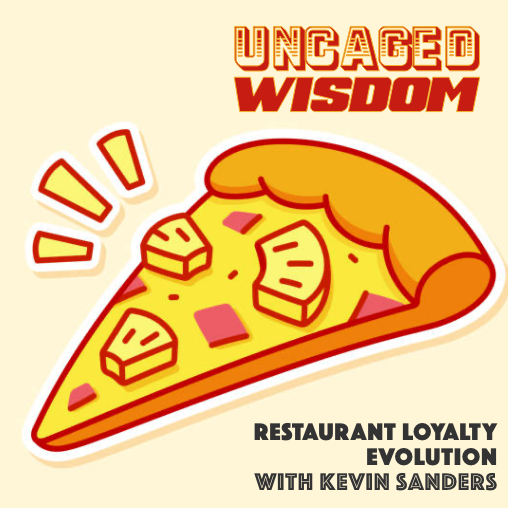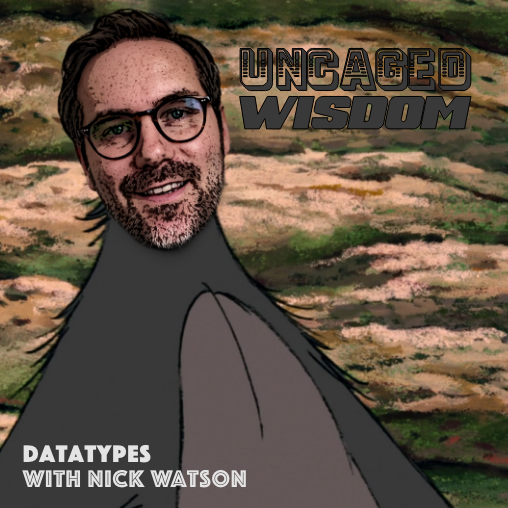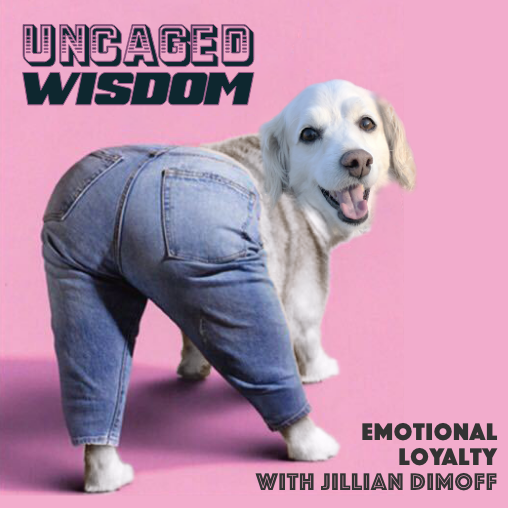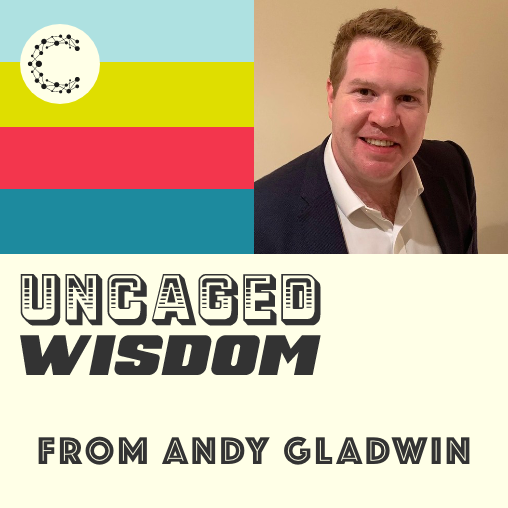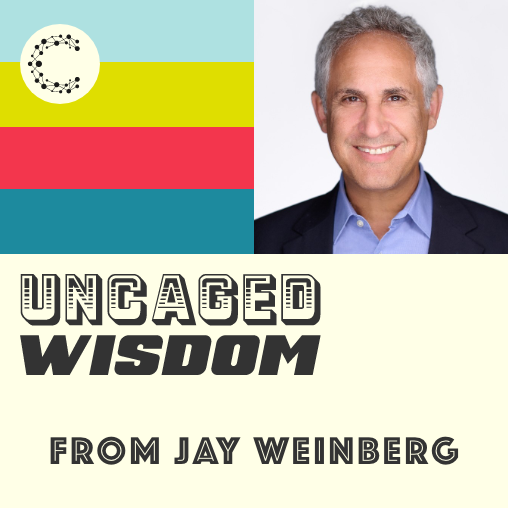How CPG Brands are Successfully Unlocking Direct-to-Consumer Relationships w/ Keith Lehman
- 0.5
- 1
- 1.25
- 1.5
- 1.75
- 2
Keith Lehman: Hi, everybody. My name is Keith Lehman, I'm Hill's Pet Nutrition Global Digital Lead. And so, across the world, I'm responsible for the online experience for our pet parents and our pet professionals.
Speaker 2: On that Keith, you say you've got a global remit, do you often have different parts of the world sort of turning up to ask you for your strategy for?
Keith Lehman: We consider ourselves more of a network practice where a lot of the main strategy and the direction that we're going to come from the globe, so from the center, if you will, and we push out a lot of strategy and direction, but I recruit a lot in, let's just say, the Europe and Symi regions, Asia, Latam, to ask," Hey, do you guys have a resource and the capacity? Let's test out new things. Let's see how well it fits within the strategy because frankly, the U. S. is a very big part of our business, and it's a very big user group that helps us define what our strategies are, but it's not the only audience. We have to be very open- minded about the new platforms that are out there and the new technology that works, especially the messages that are combined with those. Having the different in the insights from all of the different global partners are invaluable, and frankly, we save a lot of money in terms of panel insights by just doing the right things in market at the right time.
Speaker 2: But you mentioned pet parents and pet professionals. So, they're the two big audiences or, I don't call them customer basis, but the groups that you're thinking about when it comes to the work that you guys are doing, the personas in many ways.
Keith Lehman: Yeah. So, those are two very, very distinct and very specific segments that we look at. The pet parents are going to be the, you and me, and the love that we have for our cats and dogs. We share pet affinity. And we also look at our pet professionals as those that recommend our brand, that understand the science behind what we do. And so, the messages is tailored to each audience set and where we look to engage them, and we're obsessed with this idea of the gravity hub of a notion where we're pulling them closer to us and in doing so, we understand the messages that really resonate with them and the mechanics and the life journeys that they're going through from adopting a pet to later on stages or from getting a patient to making that recommendation. We're really super obsessed with the data, but also our intellectual or emotional intelligence on what message will work the best and what are people really wanting out of a brand? Those are the distinct areas that we're looking at on a day- to- day basis that make the overall strategy.
Speaker 2: I've got a dog. I come from a dog obsessed family as well. We used to have Bernie's, mountain dogs, we've got like a Jindo corgi. Kayla has got dogs and foxes underneath the house.
Kayla: I have a total zoo.
Speaker 2: Foxes.
Keith Lehman: Yes.
Kayla: We had foxes move in under our deck this spring. There was dead animals everywhere in our yard.
Speaker 2: We're all very, very pet focused on this call, which is good. When we're thinking about CPG and pets, Keith, as well, what struck me is how we do, with lots of your everyday produce that we pick up, yes, for ourselves like soap or beans or food stuffs. We all do a little bit of research, I'm sure. We might just have habits, but when it comes to the pets, they actually take the next level of interest for people. Don't they? People take that all very serious, and you mentioned the emotional connection and the work that you guys do there, but the concern for making sure they're buying the right product for their pets is actually almost no different to the way they treat themselves sometimes. Does that make life extremely interesting for me when it comes to what to do with the product lines?
Keith Lehman: It makes it extremely easy. First of all, backing up, you hit a great point. It's CPGs, when you think about them, even when I went in and came into this role, I'm thinking pet food, consumer packaged goods? I thought it was miscategorized, but there's a huge passion for pets, pet culture. There's a love. You don't go," Oh my God, I love my soap. I can't wait till I get to the shelves at my local grocery store," but pet food is important and almost nearly more important than people are getting with the food that they're putting in their mounts. Pets are small kids nowadays, and it makes life so intriguing, but it's almost not even work, it's so much fun sometimes. Feeding them correctly is so utterly important, and for us to be a very large player in that category, we have to have fun. We, obviously, have to encourage an even more impactful relationship between pet parents and pets, but we also take it very seriously. This could be life or death for a pet, and that's a family member and it makes it very, very honored. We have a very strong reputation and we like to uphold it because we love pets.
Speaker 2: How big is Hill's Pet, the number of brands, number of regions, it's a big beast, right?
Keith Lehman: It's a big beast, yeah. Hills has been in business for nearly 70 years. We are actually a subsidiary of Colgate. So, if you've heard of us, you probably haven't heard Hill's the master brand, but you've heard science diet or prescription diet. You've either seen it on your pet's store shelf, or your veterinarian when you go into clinic for your checkups. We're usually on shelf there. We have a dedicated pet nutrition academy and a place reserved out in Kansas where we just study small animals, and we make sure that the taste and the smell and the feel of the food, it's something that goes into technology to make sure that we are pushing the best nutrition possible for small animals. We're a large company. We're live and active in, I would say, close to 40 countries across Europe, Symi, Latam, Asia, Australia. So, we have a broad reach, and we've got a really, really large network of professionals that we not only speak to and talk about nutrition and talk about the way that food actually can be a representation of, or another option instead of medicine. And so, we're talking about all of the food guides and food plans that pets have and how nutrition plays a role within wellness and within therapeutic diets.
Kayla: Regarding the data strategy, can you help us understand, in the past 12 months, what projects have you been working on to help pull in more data from your consumers?
Keith Lehman: Sure, yeah. Admittedly, we were on this journey before for COVID. And so, we are across the globe onboarding a more complete holistic CRM strategy. We're working with a specific partner and to be honest with you, being in global and for all of you that are in global, it is an interesting world because everybody has their own philosophies and their own ways of handling their local business. And so for us, from a global capacity, trying to articulate a larger data idea and why it's so important, and then going into these regions and these smaller countries and seeing what data they have, it's like the worst garage fall cleaning that you've ever done. You're finding data in little small pockets, it's opted in, it's not opted in. You've got GDPR, you're dealing with in Europe. You've got a lot of data standards and with privacy, these are important elements that we're not quick to ignore. We have to have governance and we have to have all of this. So, we're cleaning house, basically. And for good reason. We've got pets parents that are utterly important to our business. So, what we're doing is starting to map what their journeys look like against what messaging that we're pushing through, getting them on tracks and automating our business, so to speak. We're also looking at the tracks of professionals and we've got partners and we've got shelters out there, and we've got so many different audience members that we have to fundamentally, it is an expectation from all users, that the brands that are out there, the businesses I do business with, they understand me, they know who I am and what I'm doing and they need to know my expectation. And so, for us to be pulling in data from a global footprint, and then to understand at the individual level, macro to micro, is so important for us. And so, we're going on a data journey. We're cleaning house, and then we're starting to revitalize what our messaging looks like in a more automated way, but also with that taste of personalization. From another aspect, our professional journey is starting to get revamped, too. If you're following, we've got that pet parent, but then we also have veterinarians and college professors and vet clinics that are doing business and that have that really strong technological education and all of this background. And so, our messages are tailored differently to them. We need to know that they're interested in grain- free or they're interested in new product types, new and different forms. Those are utterly important, but we're finding that the journeys are, that we put them on even, have become disparate. And so, what we're doing is collapsing and looking at more of a user centric type of strategy and role for Hills, and we're starting to pull all the tools that we have together, give them a complete redesign, pull in the data, and make sure technology works together. So, it's not really building this new thing, but it's taking a new approach of, let's get inside of their minds. Let's walk a day in their shoes and let's go through the experience and instead of being a barrier, break them down, so the experience is just delightful, something that you look forward to.
Speaker 2: How did you guys start from a strategic point of view? Do you look for certain data points in every country say, that you go, actually we know what pet they have. That's a good starting point. We know what food they're on. That's a good starting point. With the data cleansing you're doing, where do you even begin?
Keith Lehman: We begin with what we have. And so right now, it is based off of the region. It's based off the country. It's honestly, you start with a baseline of what you believe that you're going to have. We're all going to, by opting with the same amount of data, progressive profiling is going to be one of the most important things. We learn this from LinkedIn. All of us have gone through LinkedIn and probably have 102% profile completion because you couldn't just bear to be at 98%. You had to continue to add that in. Where we start is just, that baseline of knowing who you are at the individual level. Let's just start there because we want the consumer and we want the pet parent and whoever is our audience, to trust. We want the relationship to be there. I think gone are the days where you can anticipate you throwing a 20 field form in front of somebody, and then trust that they'll just fill it in and just give you the data. Data is becoming more valuable than the dollar or the pound. It is currency at this stage. We have to earn privilege to get to this data. I think asking for a little bit of information, and then the more that their relationship becomes, down the road, if you want to get more data, that is, I think that strategy that we're looking towards is let's normalize because not all countries and regions, especially if they're governed by different rules are going to allow everything to be put into place, but we're going to build an architecture to house it, no matter what. And then, we'll start working on the journey and strategies to get and gain that type of information, and it's not because we just want to know everything. I think we're all as marketers, we're all in tune with this idea that we want to know them to make their experience better. We want the message to be more particular, more specific for who they are. We want it to resonate, and that's the idea. I hope deeply down that's the ethical ambition is, we want to make marketing a better experience for everybody, not just to own all of the data and know everything, and I think that's our responsibility, is to make sure that one we're asking for it, the trust is there. And if it's not, go earn it. And once you get that data, utilize it for the good of the relationship and the experience, as opposed to reselling it or putting it in different spaces that don't make sense.
Speaker 2: Perhaps you guys are a little bit further down the road in thinking when it comes to your approach because of the nature of pets, as you said already, they're so important that actually you really have to understand pet owners and what they care about in a way that other CPG brands can be a bit more flippant. Do you feel like you're quite established though, in the space where understanding your consumers is the most important thing, because let's face it, the industry as a whole has often shunted it to being, we'll build the product and we'll make some nice advertising and then they can find it for themselves in a retail store or shop, or maybe online through a third seller. They've never really had that direct relationship.
Keith Lehman: None of us have that option anymore. We're living in a really... Let's take inventory real quick. Cookies are dying. We're not going to be able to do third- party sharing a lot of the time. People are flocking to the internet at historic levels and it's not going to slow down, and they're expecting brands to stand out from each other. What option do we have? We can't rely on Facebook and Google anymore for the large third- party data. We have to establish more of a creative way and utilize our emotional intelligence to utilize that message and get in front of people and really flex our muscles in terms of the spaces that we're actually good at. For us, we live pet culture and we love what our audience loves. To a degree, you can use data and you can use this information to understand where are all of the who, what, where, and why's, but the color of the walls or the way that you portray your brand, those are going to come from here and here in the hearts and minds of our marketers to our audiences. That's what we're going to try to win over. You can only go so far with your data and understanding who is resonating well with it, but you use data to directionally steer your marketing strategy. And then, you use your data to say it worked or not, but everywhere in between, I think you have to go out and have those conversations. You have to be in tune with the calls that are coming in, the posts that people are saying about how happy or how mad they are with your product or your service. Those are all of the, we'll call it data if you want to, but these are people behind the data. That's the fine line I think we need to be very, very careful about, is where we cross that line of people becoming just a number or we're putting a number to a heart and a mind that that has preference and that stands for something. I think we can't lose sight of that, and especially how digital we're getting and considering how disconnected we are.
Speaker 2: This is one of those ones that's a dangerous rabbit hole because I literally could talk about this for hours and hours.
Keith Lehman: We could, we could. Let's clear the day.
Speaker 2: The heart of everything that's happening, certainly. Broadly in marketing, but it's very specifically in the world that you inhabit and the work that's being done there. Kayla, is there anything you wanted to ask as well?
Kayla: With the fact that you're not always directly with the consumer, sometimes they're buying it off the store shelf, et cetera, how do you capture that data? Is there anything that you guys are looking into to be able to identify those consumers at the store?
Keith Lehman: I think social is a way for us to really hone in on that. We have the fortunate... Our audience is very vocal in social media and rightfully so. If pet culture goes alongside of meme culture, and it is all about the cat and dog videos, but it's just utterly easy to share all of the great stories, whether it be just the transformation story of your dog who was diagnosed with some type of cancer or some type of kidney issues, and some of your nutrition that helped bring them and revive them back, or those are the stories that we hint up to. In terms of purchase data, we get purchase data everywhere, and we work just like every other CPG with the big players to understand what does fulfillment look like? For the most part, we do the traditional brand studies and we do the path to purchase investments. So, we understand what tactics are resonating to get them to the purchase area, but for the most part, what you're looking for is good solid partnerships with your retailers to ensure that you're tying your great campaign data and the investment areas that you're looking at, and you're repurposing them. You're really, really optimizing them with your partners. The transparency is not always there. I think we all feel that. We would love to get more data from them to understand where and how and why are we, as a brand, differentiating from the other competitors that are there, but for the most part, we use a lot of proxies and we utilize social data to help us understand what the consumer is looking for. Plus, we're fulfilling all of the inventory, so we know what's moving. We know what product is a favorites, if you will. For the most part, having those day- to- day conversations with people, not only your consumers, but your vet partners, your retailers, your e- commerce giants, having lucrative and very meaningful conversations with them is what we're about. It's got to be a culture of transparency for us.
Speaker 2: But how you guys track your great campaign stuff, and you make sure that, that's tied in with the stuff you're working with partners, so that you can look for correlations and information there. It's a lot of work, I'm sure, but that's a great way of doing it.
Keith Lehman: We're not lacking in the data category, for sure. If anything, we're lacking in the people that can work through the data and get the insights from it.
Speaker 2: Yeah, and final on this, Keith, with the campaigns as well, a bit more of the mechanics, but I guess you have to broach all of the different ways that people can consume them now from offers, through partner offers in store or through... We're going to talk a little bit about the relationship you have with vets in a minute, but yeah, the offers world is I guess, on pack stuff or just pushing people to the website on digital properties where they really, it's more of a, I'm sure on the educational element, but people go to the websites, they find out and get more brand affinity. Do you have any of that strategy work in your team working out the physical and the digital?
Keith Lehman: That's a really great question, and again, another topic that we could just dive into wholeheartedly for the day. We have, first of all, a culture of testing. We love looking at new mediums and we love getting new products from Facebook and Google and Instagram, and seeing what we can do with them, because dogs and cats are so dynamic and so versatile, you can really expose and have really great content that resonates and resembles the relationships that the pets and parents have. We look for inspiration in different spaces. We look for inspiration from Facebook, from Instagram. We look at creators. We struggle a little bit because it's a global strategy and what we try to do is, make something that can be reused across because if we utilize something only for one region or one country, what really good is it? We look to make something that can be evergreen. We found, when we first started with our content journey, probably about five, six years ago, we've identified everyone was getting on National Cat Day and Mother's Day and Father's Day and all these days, but we were creating all this content that can be used for one day of the year. So, how do you actually create a content strategy that we can create something and then send out to the rest of the globe, they can use any month, any day, any week. We started to capitalize on the infotainment area where all of the content was starting to resonate with not only the technical aspect, but also, this is a boring subject and you guys make it fun, and you know what you're talking about. That's where I think that the cornerstone is, that's where we started to intersect because our content was starting to evolve. It was starting to become more about the pet culture and the relationship, as opposed to just pet nutrition. That helped open up a lot of different ideas of, well, when people are searching for this content, when people are reading through it, it's helping us understand what people are interested in most. One of the biggest articles that we had last year, why is my dog sitting on me? Who knew? But that happens a lot and people research like that. They research information like that. Why can't dogs eat chocolate? Why are dogs eating grass? How do I clean my cat's ears? Things like that, that are about pet care, and really the important elements, that's what we tarted to articulate in our content strategy. And then, it can be reutilized across the globe for everybody because it's a universal element. So, that's where we started to find more of a corner in the market, if you will, against our competitors, because we were evaluating our content in a more meaningful way.
Kayla: Away from developing these direct to consumer relationships, the Hill's pet strategy really works directly with a lot of these vet professionals to get the products out there. How are you guys approaching the digital marketing strategy around those more specialty items?
Keith Lehman: About two years ago, we went through the macro journey exercise of looking from when little Susie wants to be a vet, and she's got this ambition when she's in elementary school, and literally, it just progresses that way. She goes to vet school and then she gets into a practice as a vet technician, and then she finishes her degree and maybe moonlights at several different practices so much so that she ends up with her own practice, and she has that for years. And then, she ends up going into retirement phase. Across that, what type of message do we need to think about when these things are happening? Right now, how do we get into STEM? How do we help the culture around us? Because we love pets. We love pet parents and all that stuff, but if you really look at the fundamental, the foundational element of our business, it's education and technology around small animal health and all of this to be said, it's an important element for us. Technology education, it is fundamentally... Where our vets are making the recommendation is where we couldn't do businesses without them. We really literally would be nothing without our vet communities. And so, we're pumping our way into vet schools. And we're finding that area of vet world is becoming a new and different audience than it was 30, 40 years ago. Getting on Instagram and getting on Facebook groups and sharing insights, not only about our food and our technology, but what it's like to be a vet, they really struggle right now with being able to interact with patients because of COVID, and they really struggle with student loan debts, and they really struggle with being a profitable business. Those are the areas that we talk into. We broker different relationships with speakers to come in and we sponsor to make sure that they get the support that they're looking for, because it's more important for us that they have a healthy business model and a healthy way of doing what they need to be doing, which is caring for pets at a deeper level. That has an emotional toll, and we're there not only to help provide the food and the assistance that we obviously can support from a business standpoint, but also from the emotional level as well. The digital tactics that we use are completely tailored to every step in that journey and we take a step back and we look and optimize, and base upon those, because you have a different vet today than you did with a vet 20, 30 years ago, and everyone's adopting digital in a very, very great way, but it still left a lot of people blindsided.
Speaker 2: Looking at the data journey, which you guys said you run on a completely inaudible from the other CPG brands run, right now, we're at the, I like that, the clean house spring cleaning phase, where there's lots of data, now we need to work out what to do with it and how it could be optimized. That is then fueling the next key thing, which I know you already are in part of, which is better messaging and personalization. Towards the end of this would be, how do you formalize, or is there even a need to formalize a loyalty type programming? Would you look to move these individuals who you now communicate on a personalized level into a more formalized loyalty structure?
Keith Lehman: I think, let's step aside the CPG world for a second. If you don't have a loyalty program, you're probably going to be left in the dust. We're expecting, and it's table stakes now at this point, but now everyone flocking to online and roadside and all of this different element of being in business, I think you have to have a sticking point that's a little bit different than the competitor down the road. We have to stand out and I think, just a consumer message that's going to resonate is one thing, but having value in the relationship is going to be another and I think the loyalty program that has a tangibility of how lucrative my relationship is with a brand, is vitally important. People are looking for that. At the end of the day, they're looking for something to hold onto, and for a brand, I think that emotional connection, it can only go so far. Having a loyalty program, not only I think from a brand level, helps for a brand to take inventory of the important elements. What's the value proposition of what they're doing, really looking inside themselves and looking to redefine their brand a little bit more so than just pushing out messaging and spraying and praying, et cetera? But the consumer is looking for something that, I think, they can look to that says," Wow, look at this pile of value that I have in this brand. This is why I'm going to go back. This is why I'm not even going to research other elements, because at the end of the day, I know that I have a great product and I know that they're rewarding me for being loyal." Loyalty is just an invaluable metric that I think that is another wave. We've got social listening, we've got insights built out of search, all of this stuff. I think the next iteration is figuring out how to really categorize and to measure loyalty.
Kayla: What marketing channel do you think is the most underrated?
Keith Lehman: The guy that you hire at the corner with a sign that spins. No, I'm just kidding.
Kayla: I was a little like-
Speaker 2: I put that as a headline.
Keith Lehman: I think in- store digital is probably one of the most underrated. I think that the retailers that you see utilizing it are so dynamic in the presentation styles and the ability to optimize. McDonald's for a good example, everything's digitized. I bet they didn't have as hard a time with all of the traditional retailers that do planograms and have to swap out paper and everything. They just changed what inventory was available to what messaging. And if you think about it, if we could have more interactive in store digital elements, it would help us get more educated as we're... You guys have been in the aisle recently I'm hoping. You're looking for customer reviews. You're looking for a way to engage. I would love to see where offline and online meet literally, where you can engage the most and you can dig further and you can look at reviews and you can look at their competition and you can see all of these things, and to be more educated in your purchase decision. I think that's the more underrated, and we have to figure that out. The retailers are going to have to figure this out and for us as brands, how to help them get there, because just the traditional print material that we were wasting, first of all, from an eco- friendly perspective, I feel like we have this massive opportunity there to create something of an online in- store experience that's so much more robust than it is.
Kayla: Which technology or trend are you most excited about for the coming months?
Keith Lehman: I have a little ambition around AR. I love augmented reality. I love where it's going. I follow a lot of AR stuff. The beauty of following it is just the inspirational element that it brings, because it's so creative in the way that people are utilizing it. People are utilizing it in so many different ways, like taking a snapshot of your dog, who's overweight or obese. They give me a glimpse or picture of what he should look like. I think those are elements that helps inspire, and you get the creative juices running. These things help for people, not only of how they're utilizing it, but when they're utilizing your product, what is the outcome? What does it look like? How do I benefit from utilizing your product? Augmented reality is, I think, something that really, brands should be looking at. We tried to dip into virtual reality, but AR I think, is where you can take the realness of what you have around you and apply what your product can do as a value to see what the outcome would look like.
Speaker 2: I couldn't ask for any more, so thank you very much.
Keith Lehman: Oh, really?
Kayla: So good.
Speaker 2: Yeah.
Keith Lehman: I hope it was helpful for the masses and you guys were brilliant at interviewing, so great job.
DESCRIPTION
In this episode of Uncaged Wisdom, we’re joined by Keith Lehman, Global Digital Strategy Lead at Hills Pet (Colgate-Palmolive). Keith recently joined us on the recent CPG Industry Panel we hosted at Signals 20.
Hear more about the broader data journey Hills Pet has been on as they:
- Review current data sets, cleaning the house at both a global and local level (especially in light of recent rules and privacy regulations).
- Confidently build on this stronger data and use it to create better content, messaging, and personalization.
- Look to embrace loyalty programs.
For anyone who hasn’t listened to ‘How CPG Brands are Successfully Unlocking Direct-to-Consumer Relationships’ it can be found below:
https://www.cheetahdigital.com/signals/cpg-brands-direct-to-consumer-relationships-client-panel
In this episode hear Keith’s full, pre-panel, chat with Kayla and Julian.

